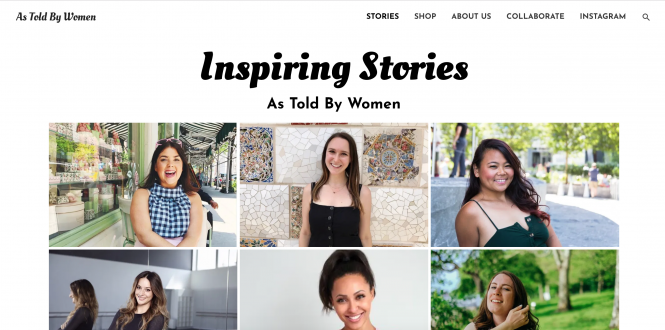I wrote this post entirely on my phone while I waited for my flight in Laguardia Airport on Friday night, so apologies for any errors–but I find that the best explanations of my struggle come from raw, unedited moments like that! Please give it a read in honor of National Diabetes Month.
I will never fully be able to explain the burden that comes from living with type 1 diabetes. But I believe it is my responsibility to try.
November is “diabetes month.” Most people don’t know that such a month exists. We don’t wear cute ribbons or complete viral social media challenges. While I am the first to acknowledge the seriousness of each medical issue in it’s own right, it frustrates me that my disease feels largely ignored.
I can’t remember the last time I felt “healthy” for a full 48 hours. Maybe not even 24. My disease is a full time job in itself – I often don’t even sleep through the night because of it. I am perpetually exhausted, both from my body attacking itself as well as the hours I spend tending to it.
I wake up every day, go to my “real” full time job, maintain a fulfilling social life, run errands, enjoy my hobbies, and anything else a “normal” 25 year old does. But the truth is, I’m not normal. On top of all of that, I fight to keep myself alive, 24/7. My body has literally waged war upon itself, so it takes double the energy for me to simply exist.
However, I refuse to just exist. Although I’m proud of all I am able to accomplish while living with a deadly illness, sometimes I feel that, in a way, I’ve set the bar too high. I don’t often show my weaknesses – I put a smile on my face, keep up my bubbly personality, and excel at my work. I try to help everyone else any chance I get. I go out with friends even when it feels impossible. In a way, I think these actions lull the people around me into a false sense of security when it comes to my disease – that it doesn’t affect me that much. That it’s not that hard.
But it’s the hardest part of my life by a landslide. I often feel ill. I often feel tired. And I often feel depressed.
Last week, I went to my first appointment with a new psychiatrist since moving to Connecticut. As she collected background information about me, the topic of my type 1 diabetes came up. She asked if I thought it played a role in my anxiety. As we talked through the time and the brainpower I spend calculating, planning, and correcting, she sat there wide-eyed. When I finished my extremely short and clipped version of what I deal with, she had one response: “Wow.”
I went on to explain that as much of a toll that the health portion of my disease takes on me, the worst part for me is the stigma and the misunderstanding. I explained that people don’t seem to know anything about type 1 diabetes, or they lump it with type 2, which is an entirely different disease. I told her about having to hear or read “jokes” about the disease that has taken my freedom and innocence away. “People make jokes?” She asked. I was able to provide her with an example from just three days prior.
Then she asked how I pay for my medical expenses. That launched into the financial burden of the disease. It is criminal how costly it is, and it’s only getting worse. If insulin prices keep increasing at their current rate, it will take the average diabetic $7 MILLION dollars just to survive throughout their lifetime. And that’s with the basics – not the more advanced technology that is being developed.
I explained that while my peers celebrate birthdays with a sarcastic Facebook post about getting another year older, I genuinely fear the day that I turn 26 because it means that I will no longer be on my parent’s insurance. My coverage will be nowhere near what it is today, and I likely won’t be able to afford new, advanced devices – let alone the expenses that come with a “normal” social life.
For now, although I am so lucky that my medical expenses are taken care of by my parents, I still hold lots of guilt that they must bear the financial burden for me. Not to mention the emotional burden that they share as well – wondering whether I will wake up in the morning as they anxiously await my first phone call of the day.
I worry about finding a partner that will be willing to share those financial and emotional burdens, as well. Someone that will understand that some days, I can’t do much but sleep. That I can’t always keep plans because I never know how I am going to feel. That I can’t be spontaneous because every morsel of food and minute of activity must be planned hours in advance. Someone that won’t be afraid for me to bear their children, despite the potential risk of passing this disease on to them. And someone that won’t be afraid to live a life without me if this disease takes me from them too soon.
It’s impossible for even my closest friends and family members to truly understand the ins and outs of diabetes without being with me 24/7 – or being in my head or body. In fact, after 9 years with this disease, I’m still constantly learning new things and facing brand new challenges.
One of the main frustrations with type 1 diabetes is that I could do absolutely everything right – calculate my carbs, dose my insulin, exercise and eat right, get enough sleep, and so on – and still produce a horrible result. I could even do the same exact thing every single day and produce a different outcome. It’s not just a science, it’s an art. And it’s a mind game.
It’s hard to say that this disease doesn’t define me. I try not to let it, but at the same time, I credit it with shaping me into the person I am today. My struggles have instilled in me an empathy and understanding of others that I don’t believe I would possess had I not battled on my own. I am slower to judge others, because I know that people may be hiding extreme pain underneath their smiles. I know, because I do so every day.
I struggle to express myself with posts like this, which is why I am constantly trying. I never want to be pitied. What I want is for people to grasp just the tiniest bit of my struggle. Maybe then, they would be more understanding. Not just to myself, but to all humans. I know looking at me, a white, upper middle class woman that has a good job and great friends, it’s easy to assume that I have an easy life.
But there is always, always more than meets the eye.
Colorfully Yours,
Haley





3 Comments
Haley, even I can’t totally relate (although it was you and I that had that first date with your new destiny)! I do believe that in a weird (and absolutely unnecessary) way, it has made you a stronger young woman than you may have been: going to school in Miami, moving to Connecticut, etc. We love you unconditionally, will always support you emotionally, financially and in anything else you ever require. You are a great ambassador for the cause and need to keep on trying to educate people. Your writing skills are what is needed in the fight against Diabetes, education, ignorance, tolerance, and the need to fight for your rights as a person with a chronic illness. I love you to the moon and back and am so proud of you!!
Love, Mom
There are tears in my eyes as I write this, just as there have been the multiple times I’ve read this post in the last two days. I love keeping up with your posts here and on Instagram, but it’s the ones where you give us your perspective of living with T1D that I personally always wait for, and it’s time I say THANK YOU.
You offer a chance to understand what you and others like you are going through, and you may struggle to express yourself but some people don’t express themselves at all. You’re right, the stigma and the jokes make it so much worse so hear me when I tell you there are so many of us on your side. Someone I know had a caption for one of those ridiculously enormous milkshakes and included the words “diabetic-coma inducing” and I thought my blood was literally boiling – at least I ranted so hard they changed it.
Please know that the right person is out there and they will be more than willing to get through the financial and emotional hurdles with you. They will read and research trying to understand and learn and know as much as they can. They’ll have conversations with your family to gain insight into what they can do to help. They’ll pick up on the cues from your behavior and they’ll have a glass of orange juice poured before you even realize your sugar is low, even if it’s 4:30 in the morning. They’ll probably hover and try to help too much until they learn to give you your space, and they’ll learn the difference between acting like your parent and acting like your partner, just as you’ll learn to break down your walls when you need to let them in to support you through rough patches. You’ll find someone who loves you so much that you being diabetic won’t put a single doubt into whether they want to have children with you, because even if there’s a risk of passing it on at least that child would have parents who understand exactly what is happening and how to live with it. The right person will be just as invested as you in the hope for medical advances and a cure because no, we don’t want to imagine this disease taking the person we love most too early from us, so we’ll be damned if we don’t do our part for you.
Please don’t give up that hope, please try not to worry about the right person because they will come along and they will understand more than you’ll think. Please keep expressing yourself, and do so knowing that even if we only grasp a fraction of what you go through, you are giving us insight we otherwise barely get a glimpse of. I, for one, cannot thank you enough.
Wow – this was the most heartfelt comment I’ve ever received! You have no idea how much those words mean to me and how much I appreciate you saying that. It’s so amazing to hear that my story has made such an impact – if I impact even just one person, it’s worth it to me. So thank YOU. So much love to you!